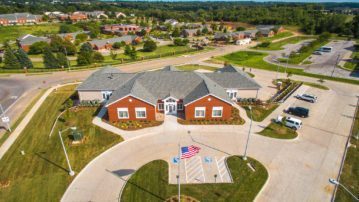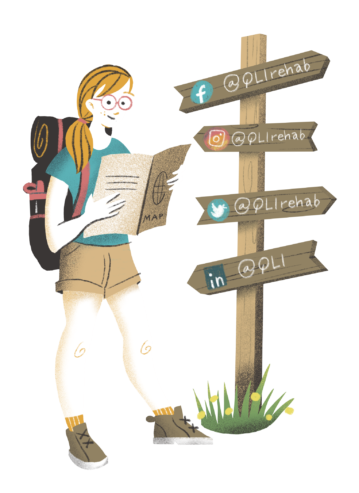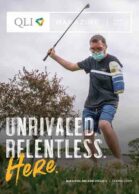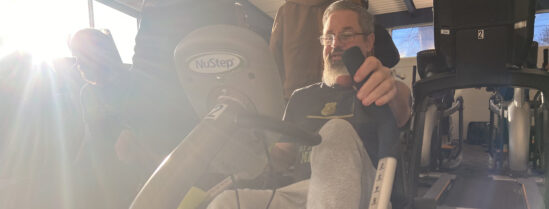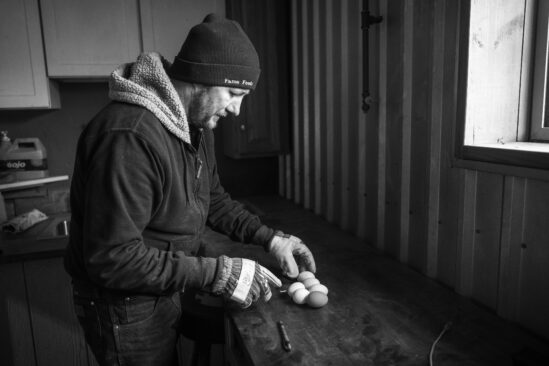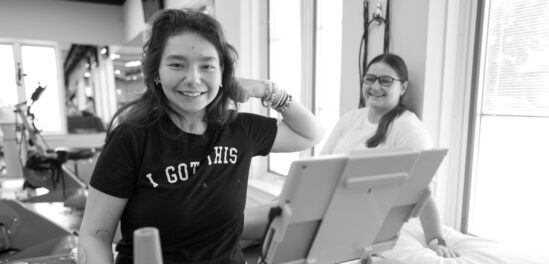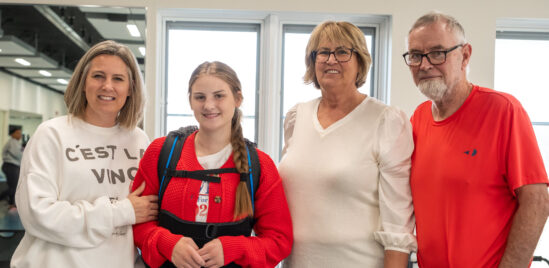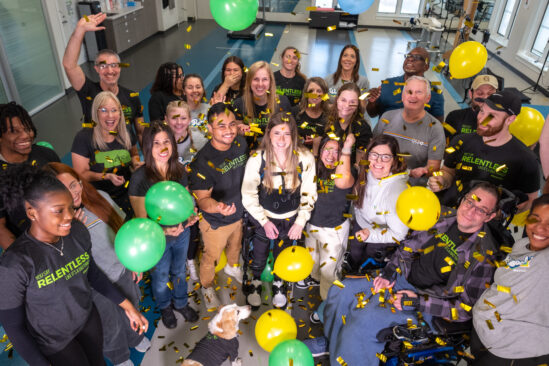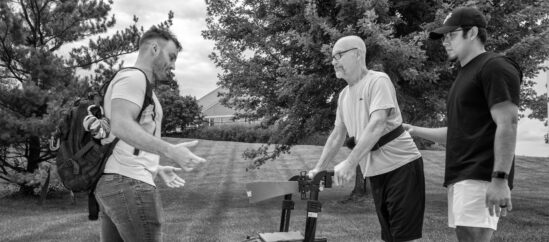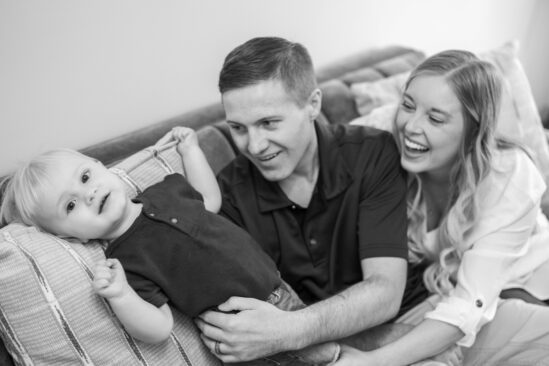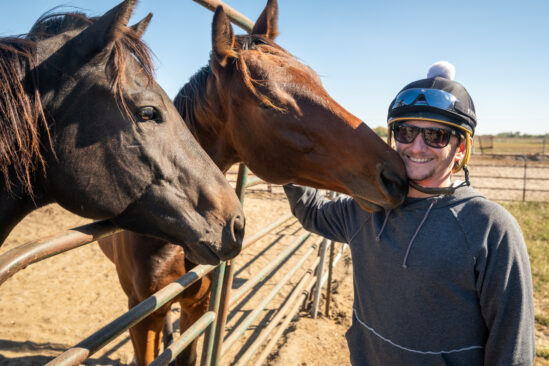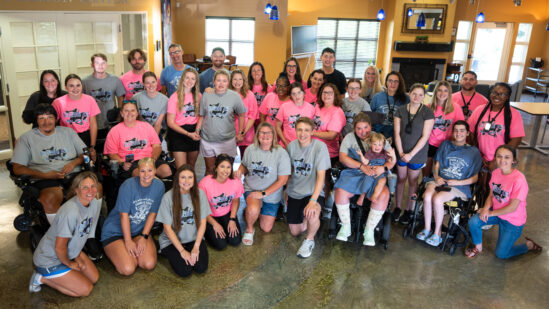When Suzanne Scott Family Housing at QLI was first imagined, its intent was built upon a familiar framework: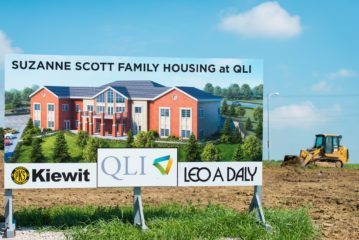
Provide the ultimate home away from home. Create the ultimate resource for families traveling across the country as their loved ones ford the path from injury to recovery.
In September 2016, as the 13,000-square-foot lodging facility opened, that intent had been made real. Within its first weekend, 11 of Suzanne Scott Family Housing at QLI’s 14 living spaces—a mix of hotel-style suites and full-size apartments equipped to meet the needs of an entire family unit—were occupied.
It isn’t difficult to witness the monumental impact of QLI’s home away from home. Since the facility’s opening, its tenants have numbered into the thousands. The three-year tally includes hundreds of families from 40 states and several international families who have crossed borders for QLI’s rehabilitation and care services. Among these numbers you find not just immediate family members, but cousins, aunts, grandparents, and family friends. The critical pieces of a family unit just seconds away.
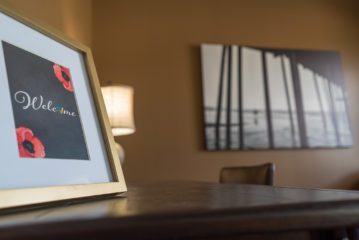 Yet, in the three years it has welcomed guests, QLI’s family housing facility has become something greater than the sum of its parts. It’s more than a quiet haven, more than clean beds and scenic overlooks.
Yet, in the three years it has welcomed guests, QLI’s family housing facility has become something greater than the sum of its parts. It’s more than a quiet haven, more than clean beds and scenic overlooks.
Rather, Suzanne Scott Family Housing at QLI serves as a gateway to QLI—both in its location and as a space in which the effects of rehabilitation are both readily apparent and put into practice
“We took inspiration from models like Ronald McDonald House Charities for this kind of service,” says Josie Godek, QLI’s Family Housing Coordinator, “but we have the advantage of being able to make unique accommodations for families—and for our rehab population—because this is our space.”
The house’s amenities double as real-world training resources. Rehab clients and their families frequently work with clinicians in the house’s true-to-life living environment. For a person to truly enjoy independence at home, the people in their support system require tremendous hands-on education and deliberate practice. QLI therapy teams can leverage the family housing facility as a training ground to communicate what support will ensure the greatest continued success.
This form of training can be as targeted or as extended as QLI clinicians deem necessary. Physical and occupational therapists supervise proper transfers in and out of wheelchairs from a range of life-like situations. Life skills coaches can provide real-time education about safe cooking practices and meal preparation. Even QLI’s family services team, which helps families navigate the unfamiliar emotional territory of catastrophic injury, uses the family housing space to connect in a more personal environment.
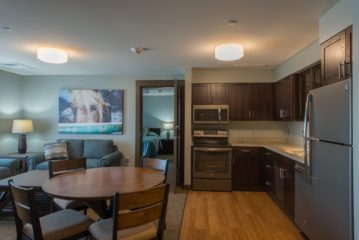 This flexibility means Suzanne Scott Family Housing at QLI isn’t simply a place to stay. It’s a key piece of the journey home.
This flexibility means Suzanne Scott Family Housing at QLI isn’t simply a place to stay. It’s a key piece of the journey home.
Godek recalls a recent story in which QLI clinicians created an outside-the-box solution for a rehabilitation participant preparing to return to their hometown:
“The clinical team proposed this young woman use the last five weeks of her rehab to stay in our family housing with her family. She was able to do the girls’ baths, read to them at night, do some simple meal prep. In their home, prior to her injury, she was the person who did those things. She took pride in that.
Those bits of realism are so very important, but it’s also important that families are able to have that time together. Did we know when we opened the doors that that would be something we’d try? Probably not. But it was a need that arose organically and we were able to respond to it.”
It’s because of team members like Godek and the broader family services team that QLI is capable of responding to those needs at all.
Godek, who carries on her resume more than twenty years of clinical experience across all parts of QLI’s diverse campus, serves as liaison and advocate for those residing within the house. She’s an empathetic voice for their loss and confusion and eventual hope.
Even more, QLI’s family services team is a team of bridge builders, connecting current tenants on QLI’s campus with families who lived through and triumphed beyond similar circumstances months or years ago, creating life-changing bonds that can mean the difference between exhaustion and perseverance.
“Our goal with family housing is the same as our goal with anything at QLI,” Godek says. “It’s about being a part of something bigger than yourself. How do we, as a team, do what’s best for the families we serve in every situation?”
Early in the facility’s planning, it was agreed that, in order to maintain that commitment to excellence, families residing in the house would never be asked to pay a required fee. Instead, Suzanne Scott Family Housing at QLI operates on donations from the Omaha community and from the families themselves.
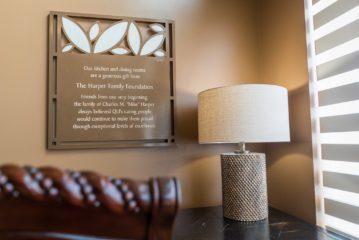
Godek explains, “It’s extremely rare for a family not to be affected financially by an injury like the ones we treat at QLI. No one plans to face a crisis like a catastrophic injury. Because of that, we’ll never turn a family away based on their ability or inability to provide a donation.”
The idea of family housing at QLI began as effort to give families a safe space—to be a glimpse of certainty in the fog of injury, to be a point of clarity in a time when little is obvious, to be a source of respite amidst the most exhausting of turmoil. And yet, its usefulness only continues to evolve and its impact only continues to grow.
Indeed, Suzanne Scott Family Housing at QLI is more than a house on the hill overlooking a healthcare facility. It’s a window into the way post-acute rehabilitation changes lives.
Not just for the individual recovering from the injury, but for everyone who feels the effects of that injury from hundreds and thousands of miles away.
“We do what we do because, frankly, it’s the right thing,” Godek says. “I can’t fathom how any other company would do it another way.”
